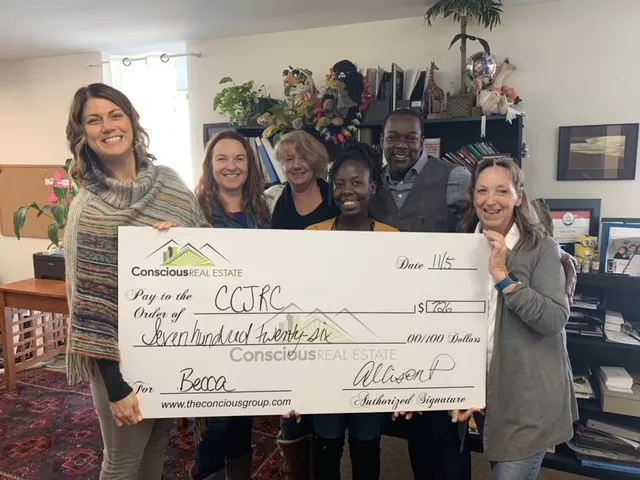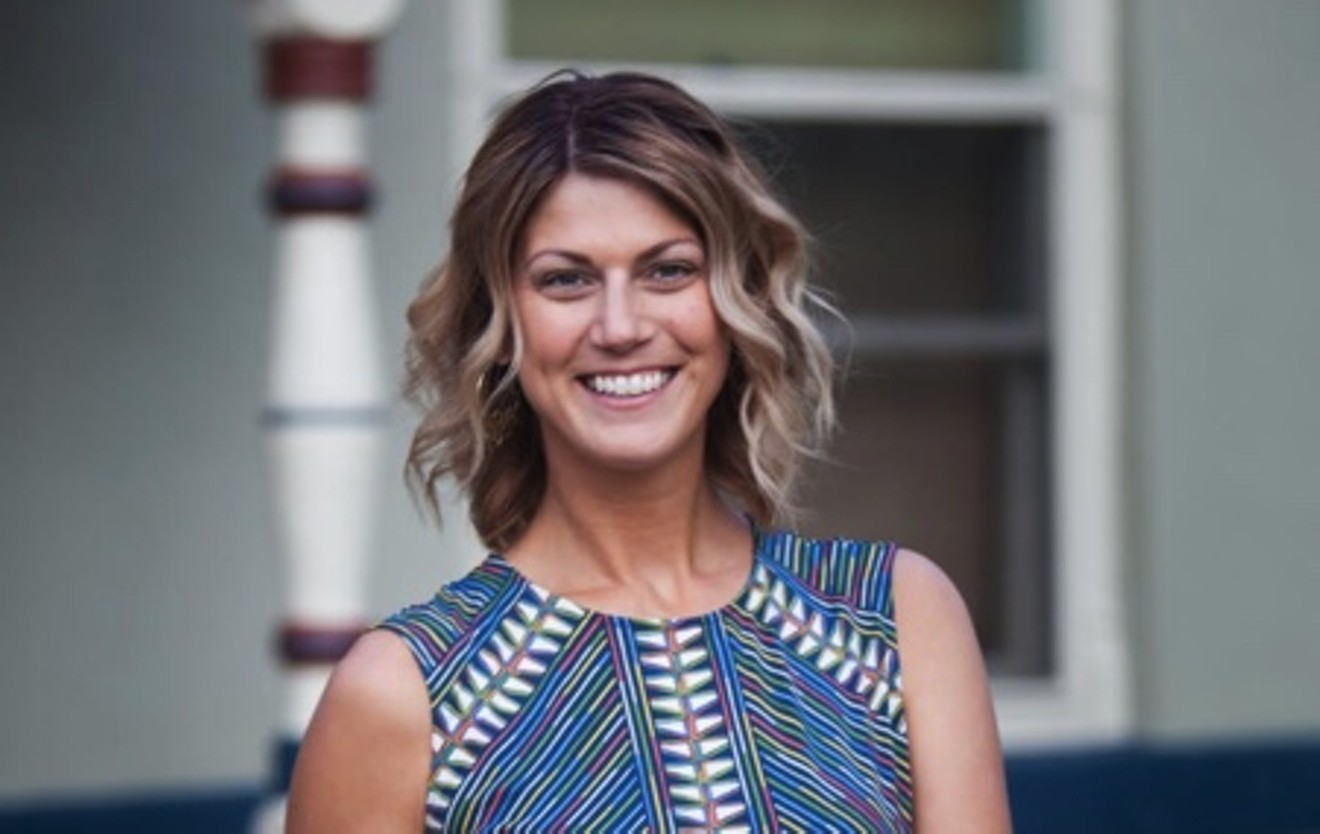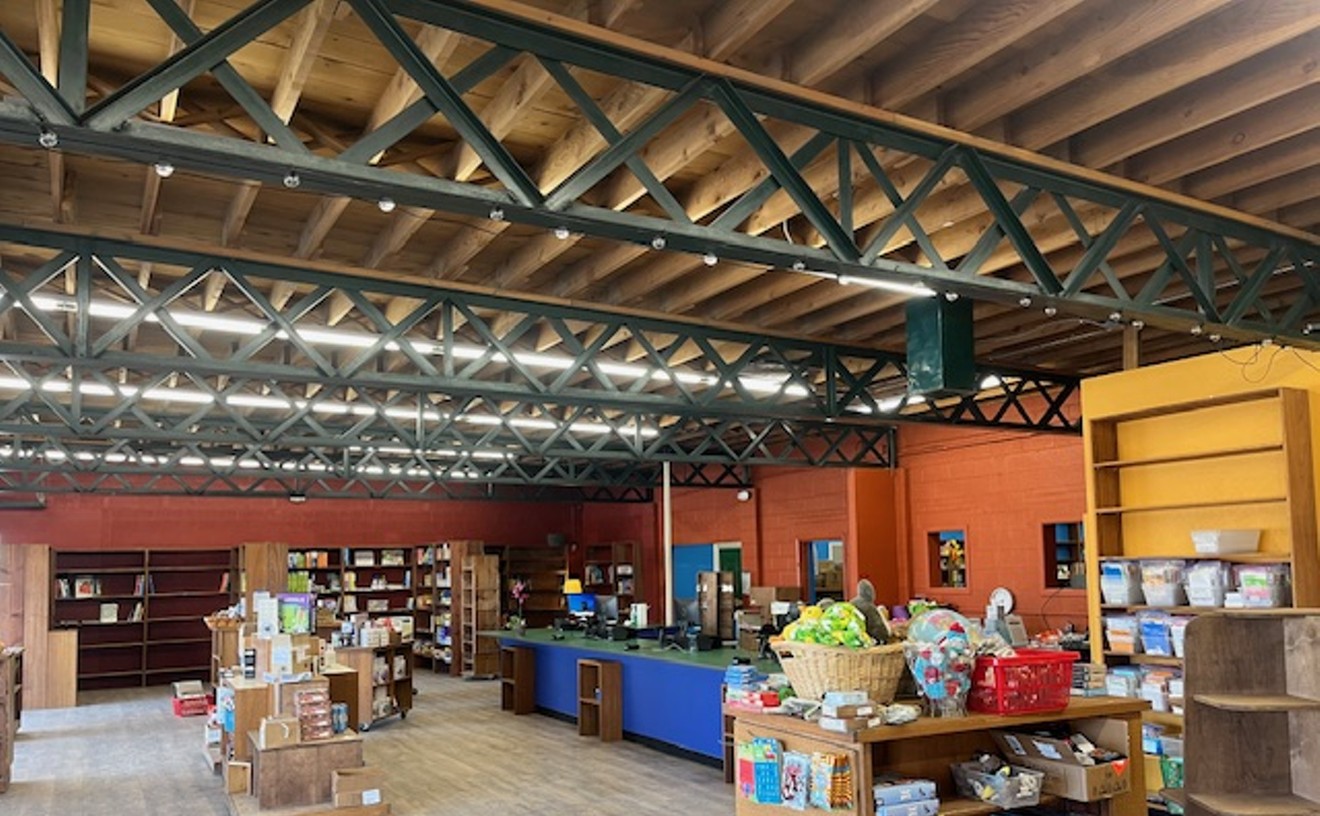Westword: When did you get into real estate?
Allison Parks: I started in real estate in 2012, then opened my business in 2015. I had been in academia for a long time, and I was ready for something else. I always had jobs working with people, but in environments I didn’t enjoy. I wanted to do something more entrepreneurial.
What makes Conscious Real Estate different from other real estate groups?
Soon after I started selling real estate, I felt like something was missing, but I didn’t know what. People kept telling me that I had to specialize by picking a specific neighborhood. I’m not someone who wants to stay in one place, though. I had to figure out what actually could set me apart. I came across a real estate company on the East Coast that set itself apart by giving back a portion of their commission to a nonprofit. That really resonated with me, so I adopted the idea. It was the first time I felt inspired by what I was doing in real estate. The idea of giving away some of my money made me happier. So whether I represent a seller or a buyer, 10 percent of my fee goes directly to the nonprofit of their choice.
How do your clients feel about giving back?
I’ve always been surprised that most people aren’t reaching out to work with me because of the giving back; in fact, some people don’t even make the connection to the giving back. But in more recent years, I’ve had more of those people come to me who are seeking us out because of the business model.
Do your clients already know where they want to give, or do you help them choose the organization? What kinds of organizations are they choosing?
Some people automatically have ideas of where they want to give. One repeat client’s mom has an autoimmune disease, so we always give to an organization that works on a cure. When clients don’t know where to give, I sometimes give them guidance. For example, if they’re a queer couple, I can suggest maybe we can do an organization that serves LGBTQ folks, or if they’re really into pets, we can connect them to a great animal organization.
I try to give examples and talk about what people have done in the past and I also try to highlight things that are important to me. Last year, I realized that we hadn’t really supported the trans community with commission donations, so I guided some clients toward health care serving the trans community, specifically with the Transformative Freedom Fund. And in both cases, they were into it.
Does your giving back look different now than it did when you started?
I was super naïve when I started it. I really thought we were gonna change the world, one sale at a time. I had no idea what mattered, what made a quality nonprofit, or how, as a privileged white person, I could be highlighting BIPOC, Indigenous and queer organizations.
I’m trying to be more aware of my privilege, and in the past, I had some idea of being a white savior. Now I’m actually trying to make up for the harm I may have caused by being a part of gentrification, displacing families and pushing people out of their historic neighborhoods. I feel like giving back is the least I can do, considering my industry. Real estate has played a historic role in perpetuating racism. We’ve become more aware in recent years, but there is so much more to be done.
In the past, I used the fact that I give back as a way to emotionally distance myself from a lot of harm — the systemic oppression that exists in our society. I figured, “Well, I’m giving back, so I don’t have to face these issues; I’m doing enough.”

Allison Parks donates to organizations like the Colorado Criminal Justice Reform Coalition.
Courtesy of Allison Parks
In 2020, I didn't have a client for a very long time. Ahmaud Arbery and Breonna Taylor were murdered, and we were all stuck in our homes. I didn’t have any money to give away, so I didn’t have those things that had always been there to count as my giving back. It opened up my heart more to where I realized giving away money wasn’t enough. I have to educate myself, identify what my role is and take myself more seriously. I have to have more conversations with loved ones and friends, and use my voice. I was always a people pleaser and neutral, but now my conscience won’t let me. A lot more of my personal life is spent thinking about these things. I am very much a work in progress.
I started paying attention to who was doing good work, and which organizations already have a lot of money, so that the money I donate could be used more beneficially. It matters where the money goes. For a small organization like Transformative Freedom Fund, a $1,000 donation matters, and that goes far. I’ve been doing more learning around bail reform, thanks to meeting Elisabeth Epps (executive director of the Colorado Freedom Fund). Supporting a small organization like the Colorado Criminal Justice Reform Coalition, that’s being run out of the basement of a church and is really trying to affect the justice system, is where my donation can make a bigger difference.
Can you talk about some of your favorite donations you’ve made?
I have been lucky enough to get some clients who are into activism, like one who introduced me to Colorado Circles for Change. Before that, I didn’t even know what restorative justice reform was. I learn so much from clients. I had a client who is an attorney donate to the Colorado Freedom Fund, when they were doing a Mother’s Day bailout, and she said it was amazing, and that someone actually came up to her and looked her right in the eyes and said, "Thanks to you, I get to be home with my kids." And what was keeping her in there was a $200 fee.
One of the organizations that had a really big impact on me personally was Judi’s House. They serve children who are grieving the death of a loved one. My mom died when I was nine, and we lived in a rural, Midwestern, emotionally shut-down part of America, where I barely ever saw anyone have an emotion. It was really healing for me to see an organization that I could have used when I was that age, helping kids to move through that grief, and maybe I helped someone with something I could have used.
What can people expect when they have you as their realtor?
I'm different from a lot of people in my industry. I don’t go for this “false professionalism,” which determines things that are considered professional that are rooted in colonial, patriarchal idealism: what car you drive, how you dress. What [this job] means is being present with people. Whether you’re selling a home or buying one, there are a lot of moving parts, and to me, to be present is to put my energy in the correct directions and to do a good job, rather than spend energy on some idea of false professionalism.
I might be in yoga pants with my tattoos out, but I’m focused on my clients, not on what I'm wearing. I’ve had more people this year tell me they didn’t feel like they deserved a house with so many people trying to buy for the first time. They need to feel comfortable with their real estate agent. ... It’s easier when people are forthcoming about that stuff instead of hiding alone in their anxiety.
What does this hot real estate market mean to you?
Oh, this market…. I pray a lot, ha! I am somehow still making all the things happen, but every time, I get scared it won’t be able to happen, because this is a whole new market. You need to be creative and have a lot of communication. It’s like we found the house, you just can’t have it. Since houses are hot, it makes my job a lot harder, and while people are worried about the bubble, I worry about what if there is no bubble, and it just keeps going like this, and nobody can afford a home.
Conscious Real Estate, 1415 Park Avenue West, 303-908-9873.











